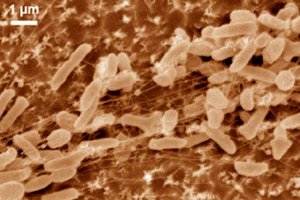
All iLive content is medically reviewed or fact checked to ensure as much factual accuracy as possible.
We have strict sourcing guidelines and only link to reputable media sites, academic research institutions and, whenever possible, medically peer reviewed studies. Note that the numbers in parentheses ([1], [2], etc.) are clickable links to these studies.
If you feel that any of our content is inaccurate, out-of-date, or otherwise questionable, please select it and press Ctrl + Enter.
Bacteria can help get rid of plastic waste
Last reviewed: 02.07.2025

Certain bacteria contain specific proteins that can break down certain types of plastic.
Bacterial flora plays an important role in the circulation of substances. In particular, these microorganisms decompose the remains of animals and plants, and even plastic. It was this fact that became an absolute discovery for scientists a little earlier.
Scientists from Chalmers University of Technology in Gothenburg have discovered a global surge in microorganisms that can break down plastic. The bacteria were discovered by studying their DNA – a stable and durable molecule that can live in soil and the atmosphere for a long time. Microbial DNA differs from that of other microorganisms, and its encoded proteins have their own special characteristics.
Scientists have long known that there are bacteria that break down plastic polymers – in particular, they were found in the stomachs of cows. Now, specialists have decided to improve microbial cells for their subsequent use in industrial waste processing.
The researchers collected DNA samples of the necessary microorganisms in different parts of the world. They were obtained both from soil and water. Moreover, a greater number of the necessary samples were found in places where plastic was predominantly accumulated, which is understandable: bacteria themselves try to use what they can for their own benefit. The only differences were in the type of plastic subjected to bacterial decomposition.
It is quite possible that soon specialists will be able to give a target direction and adapt bacteria to clean up plastic waste. Another outcome of events is also possible: microorganisms in the course of natural evolution will learn to “digest” plastic in such a volume that they will finally restore order to the environment. Biological decomposition is the most effective way to further control over the millions of tons of plastic that have accumulated today on the ground, in the soil, and in the world's waters. The fact that researchers have managed to uncover the potential of the microbiome inhabiting it to recycle plastic is already an important scientific step and an incentive for further research.
Despite the global dominance of plastic, the demand for its production in the world is steadily growing, which further aggravates the existing environmental problem. The overwhelming majority of plastic ends up in landfills or spreads throughout the environment. According to statistics, about 11 million metric tons of plastic (in addition to existing accumulations) end up in ocean waters every year. However, despite the existing risks of an environmental disaster, the true bacterial capabilities in terms of decomposition of plastic in different habitats are still being studied.
Information is presented on the ASM JOURNALS page
